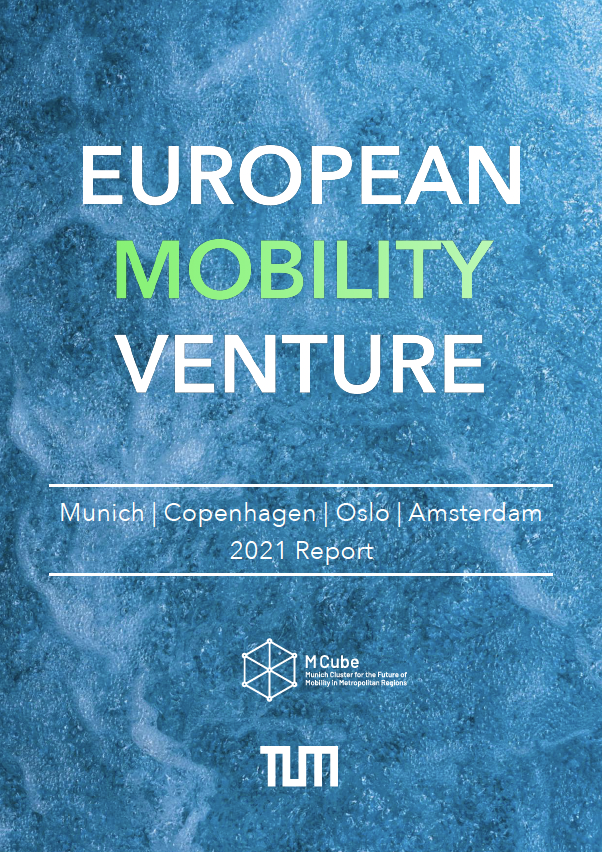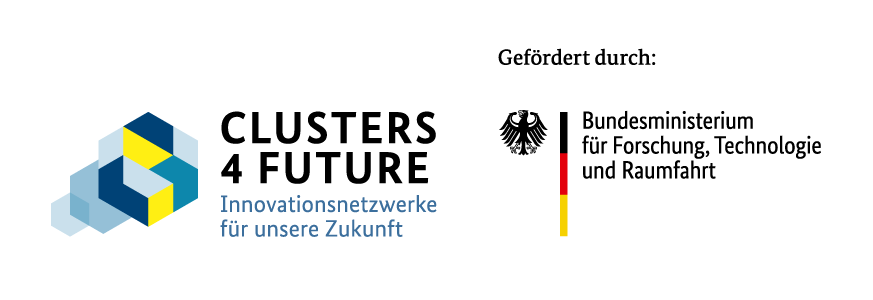The euMOVE - European Mobility Venture student project entered its second round in the summer semester of 2021.
A group of 12 students once again set off to three European cities to benchmark mobility innovations and examine their transferability to Munich.
What do Copenhagen, Oslo and Amsterdam have in common? All three cities are considered pioneers in the field of sustainable mobility innovation, with a role model role in the area of cycling and electromobility - two topics that also play a major role for Munich, among others, and are therefore firmly anchored in the MCube sub-projects that are about to start. So it's no wonder that the students - after researching Stockholm, Talin/Helsinki and Barcelona with their predecessors last year - chose Copenhagen, Oslo and Amsterdam as suitable research destinations.
This year's cohort consisted of 12 TUM students from a wide range of disciplines, from engineering and management to social sciences. In small interdisciplinary groups, four students each set off for one of the three cities. The students were not only to gather impressions of the local mobility system and its context as well as trends in the field of mobility innovation, but above all to identify key similarities and differences and thus the potential pontential for Munich.
After eight intensive months of work, including numerous interviews with experts, document analysis and the highlight, a 10-day research stay in the respective target city, the project was successfully completed in October 2021. The students presented their results at the October 1, 2021 in the new premises of the Munich Urban Colab in front of representatives of the MCube consortium and other interested partners and stakeholders via Zoom. They also summarized their findings in a project report, which can be downloaded here.

Download euMOVE project report 2021
We would like to congratulate all students on their successful project completion and thank them for their commitment!
How can mobility data and simulations make cities more liveable - and make change visible and tangible?
The MCube Consulting study shows how the Olympic Games could have a sustainable impact on Munich in terms of sport, society and the environment - something that has already been picked up on by many media outlets.
Munich is considering an Olympic bid - our study shows what opportunities and challenges the Games could bring for the economy, environment and society.
How do we want to move tomorrow? This question was the focus of the Citizens Lab at Marienplatz for six days.
The visual utopian Jan Kamensky presented his latest vision in cooperation with the Munich S-Bahn.
Carolin Zimmer from the Chair of Settlement Structure and Transport Planning and Sebastian Preiß from the Hans Sauer Foundation explain in an interview what the project has achieved and what makes it special.
Major award for a strong team: MCube Consulting receives the Innovation Award of the City of Munich - for a solution that reduces administrative workload, improves security and shows how research enables real change.
If Munich bids for the Olympics again, it will not do so arbitrarily - but with vision, attitude and a clear plan.
MCube had its own stand at the trade fair and brought together over 100 mobility pioneers at the "Bridging City Innovation Ecosystems" event above the rooftops of Barcelona.
What does the bus of tomorrow need to look like to convince as many people as possible to change buses voluntarily?
No results available

What is MOSAIQ?
Imagine something: There is more space for people. The streets have more trees and plants. Everyone can get around better. That's how your Schwabing-West district could be in the future. How would you like your district to be? We want to talk to you about it!
The project is called MOSAIQ. MOSAIQ is a research∙project. MOSAIQ means: Mobility and urban climate in the future city∙part. The Technical University of Munich is leading the project.
What is MOSAIQ about?
MOSAIQ wants to make the streets in the city∙part more beautiful. People should feel comfortable there. There should be more space. For meetings and plants, for example. You can help decide what is tried out in the Stadt∙teil. The ideas come from you. Some ideas will be tried out on the streets for a certain period of time.
The aim of MOSAIQ is to make urban districts good places to live.
At the same time, the climate in the city should improve. And people should be able to move around the city easily.
What is happening in the district?